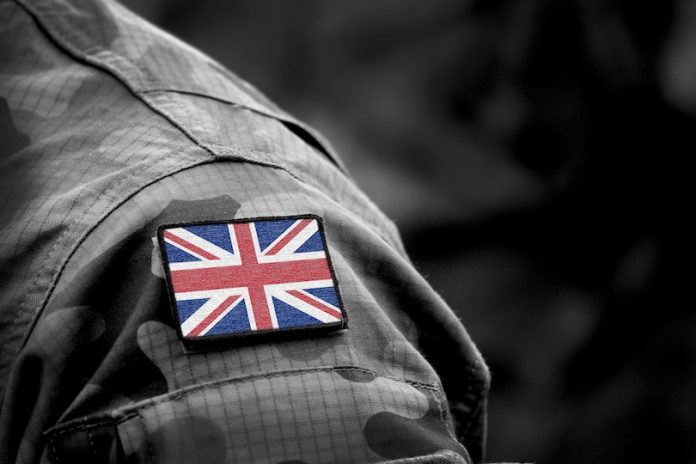Unless you are a member of the British armed forces or you know people in the military, you probably haven’t given much thought to how the institution deals with misconduct perpetrated by those within its ranks. Before I began researching the British military’s justice system, nor had I. My knowledge initially stemmed from what I had been taught at school about the First World War, anecdotes from friends and family who were in the military, TV shows, and news reports of soldiers committing serious crimes overseas. From this, I had pieced together that the British armed forces had their own police forces, court system, and detention facility and that this system dealt with offences that ranged from the comparatively minor – such as failing to turn up to a shift after a night spent drinking – to the more serious – for example, allegations of war crimes.
Initially, nothing had struck me as odd about the fact that the military had its own separate system of justice. After all, much of what I have just mentioned speaks to offences that are exclusive to a military context in which the jurisdictional complexities of overseas deployments are further muddied by the violent nature of military work. What is more, the existence of a separate system of military justice is not distinct to the British context nor is it something new, having existed in some form for centuries. For many, the rationale is self-evident: military work is unparalleled, dangerous, and violent. In addition to “the unique nature of the Service environment”, there are two other important points to flag as well. First, there is a requirement under international humanitarian law for organised armed groups to be able to enforce discipline and to ensure compliance with the law. Second, military justice is portable (i.e. it can be taken overseas), meaning that service personnel cannot simply act with impunity if they are deployed to a setting where the domestic justice system is not human-rights-compliant.
While the system’s capacity to deal with offences taking place away from operational contexts is also recognised by scholars, the rationale most frequently provided for maintaining a separate system of justice nonetheless foregrounds a conception of the institution in which operational activities are the defining experience and ultimate purpose of all forms of military work.
When I began my research, I was curious about how the rights of service personnel were navigated in relation to these operational pressures. My initial reading had pointed me in the direction of the Military Court Centres as one of the spaces most deeply imbricated in the debate surrounding the rights of military personnel. Consequently, between 2021-2023, I conducted courtroom observations at one of the UK’s permanent Military Court Centres. Yet, of the 15 hearings I observed as part of this project, only four related to distinctly ‘military’ offences – the others involved charges of assault, battery, sexual assault, and rape, taking place in the familiar spaces of bars, swimming pools, bedrooms, and offices. The more I observed, the more curious I became about how these seemingly ‘non-military’ offences had come to be the concern of a military system of justice.
At the time of conducting this research (2021-2023) there was, and continues to be, mounting pressure on the military’s justice system to demonstrate its ability to effectively investigate and prosecute sexual offences and other ‘unacceptable behaviours’ perpetrated by military personnel against their colleagues. Indeed, scrutiny of the military’s responses to sexual offending has indicated that the system is characterised by low conviction rates, a lack of support provided to victim-survivors, and significant failures in the investigation of such offences. This has led to calls for cases of rape and serious sexual assault to be taken out of the military’s jurisdiction when committed in the UK.
In March 2024 following similar levels of scrutiny, the Canadian parliament introduced legislation to strip the military of its powers to investigate and prosecute all sexual offences committed by its personnel on domestic soil. In the UK however, only small concessions to the military’s jurisdiction over such offences have been made. Frequently, this is justified with reference to the civilian criminal justice system’s extant failings in responding to sexual violence. Yet, whether cases of sexual violence and other unacceptable behaviours belong in a military system of justice (or should be subsumed into the civilian system) was not the central focus of my research. Instead, I sought to examine what the daily workings of one of the military’s primary mechanisms used to respond to ‘unacceptable behaviours’ could tell us about how violence is conceived of and responded to by the institution, and what the implications of this were on the everyday lives of military personnel.






